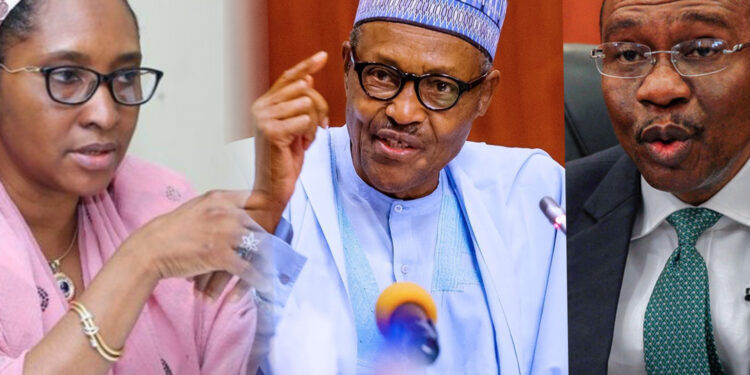By John Omachonu
Nigerians have come to the realization that emerging and sustained tolerance of impunity typified by pervasive counterproductive roles of some government appointed and elected officials as well as non-state actors are contributing to the growing crisis in the polity and the lack of state capacity to deal with the contemporary complexities of governance.
With Poverty rate averaging 62.5 percent, Nigeria housing the highest number of poor people in the world, with over 60 percent multidimensionally poor and 93 million Nigerians lacking access to electricity and only 15 percent having access to clean cooking fuel, according to Bismarck Rewane, chief executive of Financial Derivatives in the latest edition of the LBS Breakfast Session, Nigerians would have to look forward to next year for succor and possibly reforms that could possibly turn around the economy for good.
Consequently, most analysts believe that the country is in a dire strait, particularly, with lack of synergy between the monetary and fiscal policy measures, a necessary ingredient to fast track growth and development.
But, what Nigerians are witnessing on daily basis is the rising level of impunity, with consequences of acrimony and unnecessary rivalry, among and between government officials, trying, rather to satisfy their principal, at the expense of the required synergy, cooperation for the achievement of growth and development.
More worrisome, according to them, is the fact that they seem to be lacking consequences for the growing ‘misbehaviour’ by way of either reprimand or punishing the perpetrators if only to serve as deterrent to others.
Hence, inter and intra agency rivalry, particularly, at the federal level seems to be the other of the day, with most Nigerians asking, ‘how did we get here and who is really in charge of the economy.
For instance, it is understood now that the rising opposition to the redesignation of some naira nates is not only from politicians but also, some government appointed officials, who feel that their entrenched interests are being threatened by the limitations placed on the withdrawals by individuals and corporate organisations.
The new financial policies introduced by the CBN, appeared to have disrupted some political parties’ vote-buying strategies, leading to plans to fight back and circumvent the newly introduced policy.
But some human right lawyers, chairmen of political parties, civil society organisations, ethnic youth leaders and Arewa youth consultative movement, under the auspices of Coalition of National Interest Defenders (CNID), recently raised the alarm over secret plot to disrupt the CBN plan for a policy that could enhance the credibility of the electoral process.
According to them “part of the plan was to incriminate Godwin Emefiele, CBN Governor and get him out of the way, at least, before next year’s general election.”
However, the plan could not work as the Certified True Copy (CTC) of the ruling delivered on December 9, 2022, by justice John Tsoho, revealed that the motion ex parte was filed on behalf of the DSS by one US Gambarawa on December 7, 2022.
The new financial policies introduced by the CBN, appeared to have disrupted some political parties’ vote-buying strategies, leading to plans to fight back and circumvent the CBN newly introduced policy.
But, Nigerians are still waiting for official reactions from the presidency, following increasing threats to peace in the polity and even though the withdrawal limit has been reviewed upward by CBN.
Rewane, observing that 2023 will be a defining year that could make or break the country said,
“First, a bird’s eye view suggests there will be a spillover of 2022’s demons into next year. That is high inflation, sluggish growth, currency weakness, falling consumer disposable income, interest rate hikes (albeit at a slower pace) and rising debts.
But the defining factor is the elections. Tensions are high, promises are loud and long but the candidate with the best chance of delivery is what Nigeria and Nigerians need.
On our end, it is too early and dangerous to foretell the election outcomes at this time. However, ceteris paribus, we believe that Q1 will be for elections, Q2 for litigation, Q3 for celebration and Q4 for redemption. One thing is certain; whoever holds the baton for Nigeria in 2023 is inheriting a truck load of economic problems that only true and vibrant reforms will solve gradually.”
According to the foremost economist, “Poverty rate averaged 34% in the last 10 years – Now 62.5% Nigeria houses the highest number of poor people in the world, overtook India in 2018 133 million Nigerians are in multidimensional poverty 93 million Nigerians lack access to electricity Only 15% of Nigerians have access to clean cooking fuel.”
ALSO READ:
Buhari Seeks Senate Approval To Restructure CBN’s N23.7trn Ways And Means
He sees 2023 as unique because “The economic decay curve has crystallized The fiscal, external and monetary imbalances are taking a toll on output, employment and prices Nigeria not an outlier, SSA countries are bleeding.”
Friday Ameh, Lagos based energy analyst says impunity with its negative consequences are thriving because culprits are never punished, adding that governance and political leadership in Nigeria have been driven by self-interest and other primordial considerations, which take priority over that of the public.
According to Ameh, Nigeria is lagging behind in security of lives and property, promotion of the rule of law, and provision of visionary leadership, stressing that the country’s nature and characters of the political leadership explains the state incapacity for effective governance














